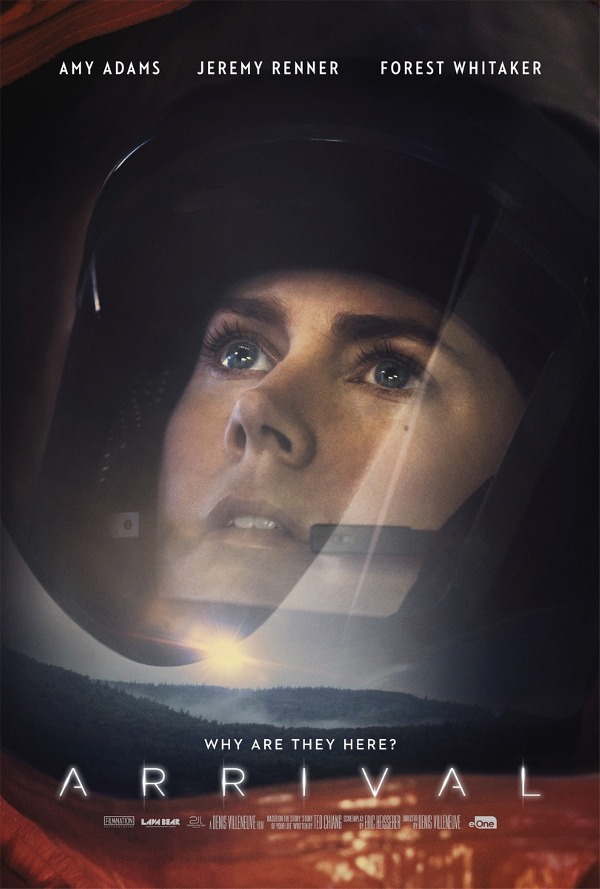- Title: Arrival
- IMDb: link

We’ve seen this all before. Alien arrival movies have become a Hollywood staple, although the themes have varied allowing the sci-fi tales to cross genres from horror to comedy. Movies centered around first contact with aliens fall into two categories based on the reasoning behind the aliens arrival on Earth. Are they here to destroy (Independence Day, Invasion of the Body Snatchers, The Thing) or do that have more complicated, but ultimately benevolent, motivations (E.T., Close Encounters of the Third Kind, Contact)?
Adapted from the short story by Ted Chiang, Arrival is presented from the view of linguist extraordinaire Dr. Louise Banks (Amy Adams) who is brought in by the United States Government when one of twelve monolith-style alien space ships which have arrived on Earth lands in Montana. Racing to be the first country to decipher just what the aliens want, the U.S. gives Dr. Banks control of the team along with physicist Ian Donnelly (Jeremy Renner). Together the pair work together to begin attempting to communicate with the squidish Heptapods whose language comes from visual drawings created by expelling ink from their tentacles.
It’s hard to go into too much detail about the film’s plot as it relies heavily on a late reveal which I won’t spoil here. While not exactly a twist, the plot point does begin to tie various story elements together (while also raising quite a few plot holes which may begin to nag you on the drive home). While overcoming exhaustion caused by the circumstances, we also see several flashbacks to Banks’ relationship with her daughter which ultimately will play a part in how she communicates with the aliens.

Not as powerful, or memorable as his last film (Sicario), the latest from director Denis Villeneuve still has some interesting (if not that original) ideas to explore concerning both humanity’s inability to work together and Earth’s first contact with extraterrestrial life. Sci-fi fans will notice similarities to everything The Day the Earth Stood Still (the original, not that awful remake) to Signs. There are some nice flourishes along the way, such as the style of the aliens’ communication and the sequence where Louise and Ian enter the spaceship (where laws of physics and gravity change) which help it stand out a little from similar movies.
The movie isn’t without it’s flaws, including an over-reliance on wide-sweeping shots and a bombastic score which drag out sequences unnecessarily. Still, even through some of these drawn-out sequences, the film succeeds in letting us feel Louise’s awe, fear, and doubt about the job she’s just signed-on for. While not entirely successful, and slower and more cerebral than some may expect, Arrival is an interesting addition to a well-stocked genre fans of such films should enjoy.





